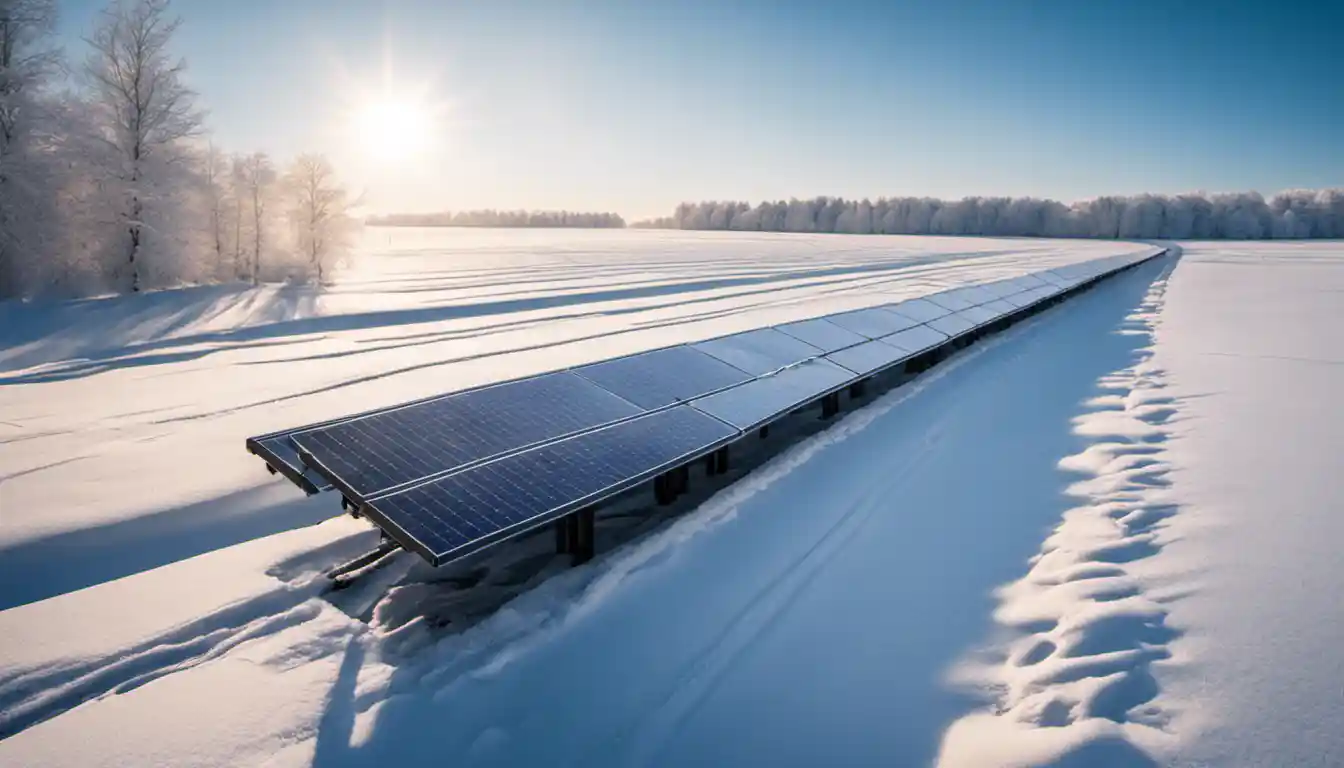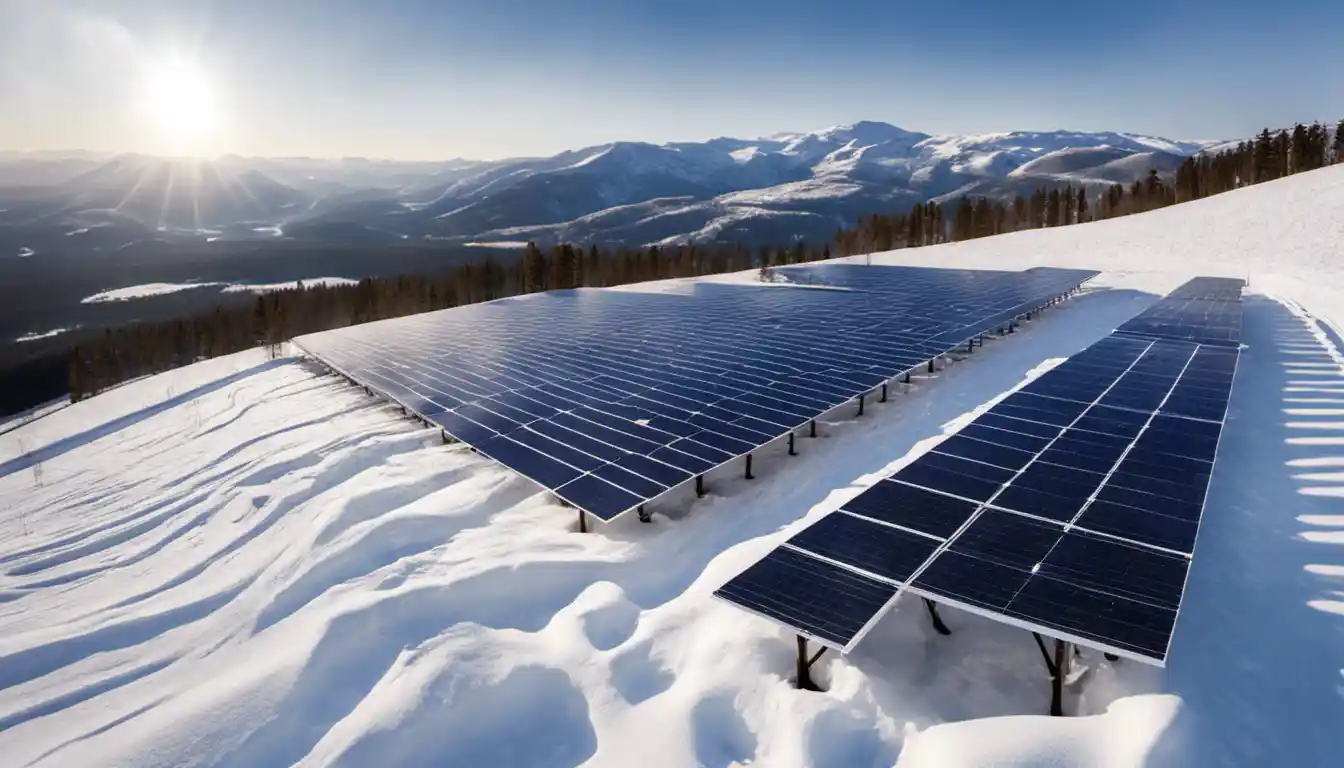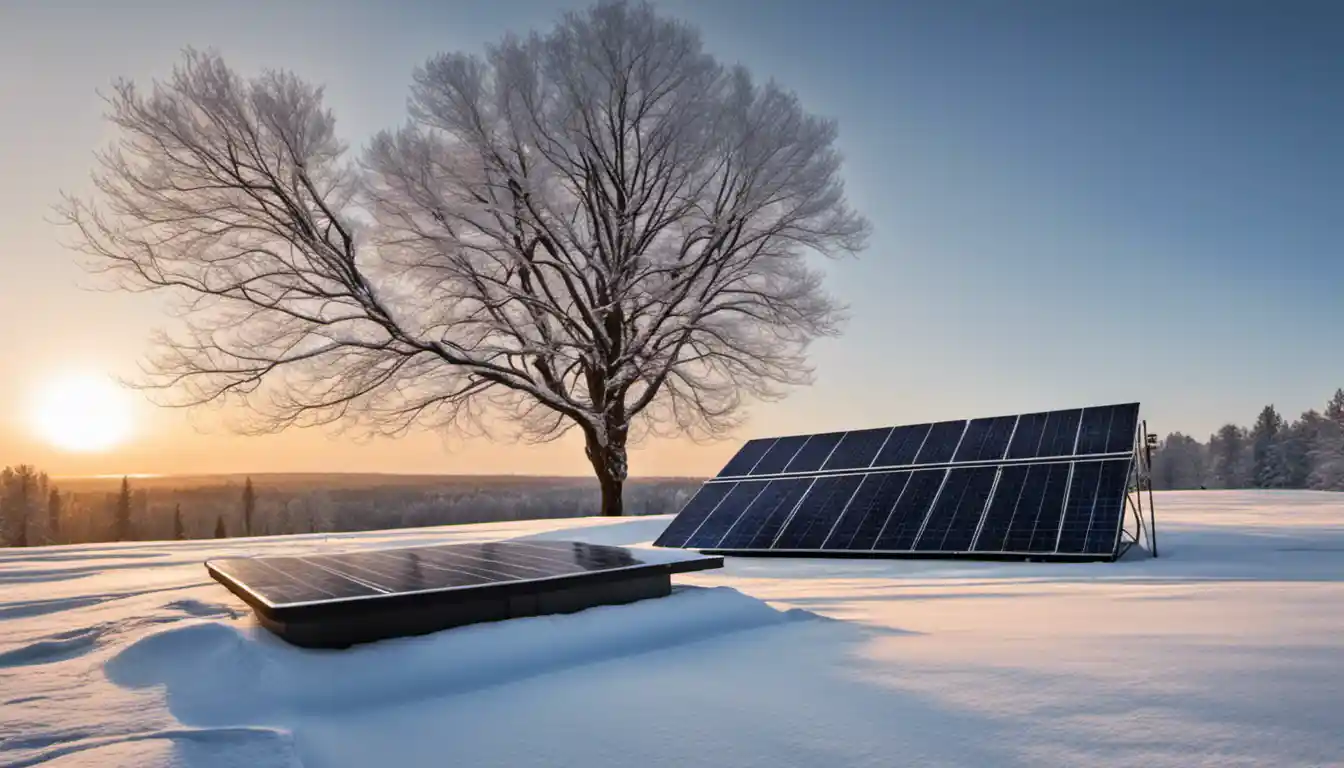Introduction to Solar Panels and Winter Weather
Solar panels may experience a decrease in efficiency when covered in ice as it can obstruct sunlight from reaching the solar cells. However, due to their slippery surface and the heat they produce, ice and snow tend to melt or slide off. It’s recommended to let nature take its course rather than manually removing the ice, to prevent any potential damage.
Impact of Ice on Solar Panels
Ice can have impacts on solar panels in two distinct ways: physical deterioration and optical hindrance.
Physical Deterioration Caused by Ice
Icing, especially when thawing and refreezing occurs repeatedly, may strain the structure of the solar panels leading to potential physical degradation over time. The built-in durability of most solar panels tends to manage this stress quite efficiently, but ongoing ice-related factors could quicken wear and tear.
Optical Impact of Ice on Solar Panels
Another way ice affects solar panels is through light obstruction. An ice-covered panel doesn’t receive sunlight, which limits the solar cells from producing electricity. Hence, clearing that layer of ice becomes necessary to resume full power production.
Do Solar Panels Work in Snow?

The question of “do solar panels work covered in ice” often extends to queries about snow too.
The Effect of Snow on Solar Panel Performance
Snow can reduce the effectiveness of solar panels similar to ice. A moderate layer of snow can obstruct sunlight and cause a drop in energy production, just like a layer of ice. Following a heavy snowfall, the accumulated snow might considerably reduce energy output.
Why Solar Panels Can Still Function Despite Snow
Despite these obstacles, solar panels can still function during snowfall. Sunlight can pierce through thin snow layers and can cause a greenhouse effect, helping melt the snow and even enhancing panel performance. The angle and smooth surface of panels also assist in enabling the snow to slide off.
Impact of Cold Temperature on Solar Panels
Cold and chilliness actually boost panel performance. Higher temperatures can reduce the efficiency of the electricity generation process, so the cold weather aids in the photovoltaic operation as long as the panels receive ample sunlight.
The Issue of Short Winter Days
Short days and reduced daylight during winter months must be factored into energy production calculations. However, it’s worth noting that solar panels generate power from light, not heat, so clear winter days can still lead to reliable energy production.
Maintenance of Solar Panels in Winter

Keeping your panels clear from heavy snow and ice coverage can enhance their winter performance.
Why You Should Clean Snow and Ice off Your Solar Panels
Although solar panels are designed to withstand harsh weather conditions, large accumulations of ice or snow may hamper their energy production. So, brushing off excess snow once in a while may prove beneficial, but be gentle to avoid scratching or damaging the panels.
Different Methods of Cleaning Solar Panels
Cleaning snow or ice off the panels should be carried out with absolute care. Use a soft and long-handled snow brush, and avoid using any metal tools or hard-bristled brushes.
Choosing Solar Panels: Considering Winter-Related Factors
Apart from how does ice affect solar panels, you should also consider several other variables before investing in a solar panel system, especially if you live in a cold climate.
Importance of Solar Panel Quality in Winter Weather

High-quality panels usually have a robust design that can withstand harsh winter conditions and can perform effectively despite reduced sunlight hours.
What to Look for in a Winter-Proof Solar Panel
Look for panels rated to endure snow loads, certified for hail resistance, and panels that offer excellent low-light performance.
Exploring Solar Panel Technologies for Snowy and Icy Conditions
Newer technologies are making panels more durable and resilient to icing and snow.
Innovations in Snow-Proof Solar Panels
Innovative features like hydrophobic (water repellent) coatings are being introduced to discourage snow accumulation and faster melting.
Future Developments in Solar Panel Technology
Advancements in technology promise more efficient and weather-resilient solar panels in the future.
The crux is that, while winter can pose challenges, solar panels still work effectively, even in snowy, icy conditions. And if you are still curious about how weather affects panel efficiency, swing by our page on how weather, including snow and ice, could impact your solar panel power generation as well.



